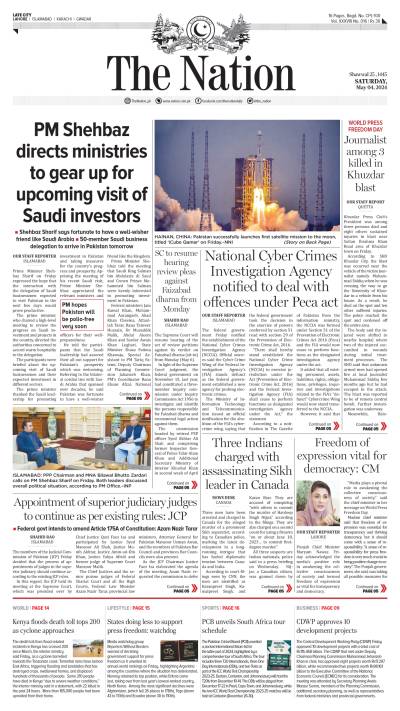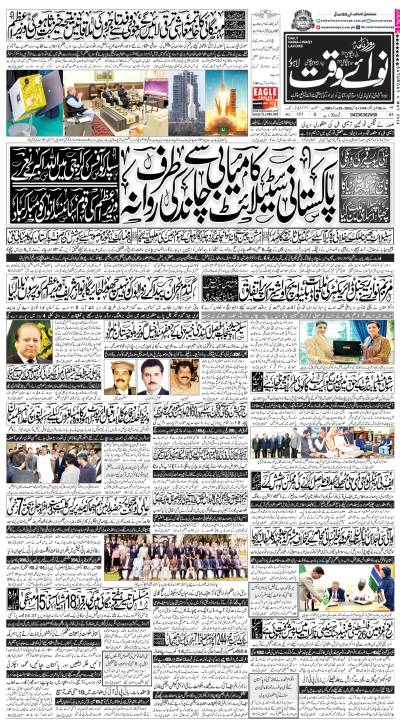An expression of remorse by US Secretary of State Hillary Clinton over the Nato mistake that killed 24 Pakistani soldiers at Salala check post last November finally clinched the deal that reopened the land route for the Nato goods to transit through to Afghanistan via Pakistan. The American side of the deal entails the unfreezing of the 1.1 billion dollar Coalition Support Fund that had been approved for payment to Islamabad against the amount it had spent on war on terror, but blocked since Pakistan refused to lift the blockade of Nato supplies imposed to express its anger at the Salala massacre. In a statement issued after she had spoken to Foreign Minister Hina Rabbani Khar on telephone, Secretary Clinton said, “We are sorry for the losses suffered by the Pakistan military,” acknowledged the mistake and committed that the US would ensure “to prevent this (Salala) from ever happening again”. Clinton said that Khar had told her that Pakistan would reopen the supply channel and not insist on any transit fee. The Defence Committee of the Cabinet, also meeting on Tuesday, made the same decision.
It is clear that while five months of negotiations gained Islamabad a cautiously worded statement, which qualifies as an apology by the narrowest margin, Kabul by contrast received an apology and visit from President Obama himself for the deaths of Afghan civilians. One wonders why, if this was the apology in the offing and the Pakistani magnanimity of no transit fee was also to be extended, why then did Pakistan not accept the offer of an apology five months ago. Not just that, but the months long standoff was said to be in pursuit of terms recommended by the Parliamentary Committee. All of these terms, save for the apology, appear to be ignored in light of the GLOCs reopening. In lieu of national honour, if Pakistan has made the mistake of dropping the demand for the transit fee, it would be left to repair, at its own expense, the road network Nato’s heavy vehicles would damage. Thus, it is pertinent to suggest that perhaps our best minds must devote themselves to finding a way to convert national honour into cash reserves for the national kitty. A mutually agreed fee was a perfectly justified case to plead with the US. To forestall the threatened action by religious groups, the PTI and the Taliban to materialise, a large security force is expected to be deployed, which would also call for a tidy sum to be spent. Transporters and drivers of Nato trucks also face life threats from the Taliban and have asked for security.
One would perhaps understand that there must have been compulsions which led Pakistan to allow the transit route to open. There was, of course, the need to defuse tension with the superpower and over 40 of its coalition partners which had become particularly acute over the Nato goods controversy. Facilitating the evacuation of foreign troops by 2014 is also in Pakistan’s interest. However, the reset of relations with the US ought to have been seen in light of Parliament’s decision. The new arrangement must now be placed before Parliament for approval, to not totally destroy any impression that Pakistan’s parliament is sovereign and effective.
Sunday, May 05, 2024
Apology accepted
Samarkand to stage FIFA Futsal World Cup Uzbekistan 2024 draw
11:12 PM | May 04, 2024
Dr Ahmar Sohail Basra assumes charge as Radio Pakistan Lahore station director
4:55 PM | May 04, 2024
Hearing against Ali Amin Gandapur adjourned until May 17
4:53 PM | May 04, 2024
May 9 perpetrators now giving statements about talks with military: Khawaja Asif
4:52 PM | May 04, 2024
Will provide free medicines to 200,000 patients at their doorstep: CM Maryam
4:51 PM | May 04, 2024
Tourist Tragedy
May 04, 2024
Ending Polio
May 04, 2024
Will Justice Prevail?
May 04, 2024
Fair Play
May 03, 2024
Parliamentary Stalemate
May 03, 2024
Current state of affairs
May 04, 2024
Cryptocurrency revolution
May 04, 2024
The accessibility revolution
May 03, 2024
Maternal well-being
May 03, 2024
Tackling poverty
May 02, 2024
ePaper - Nawaiwaqt
Advertisement
Nawaiwaqt Group | Copyright © 2024





